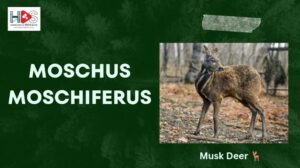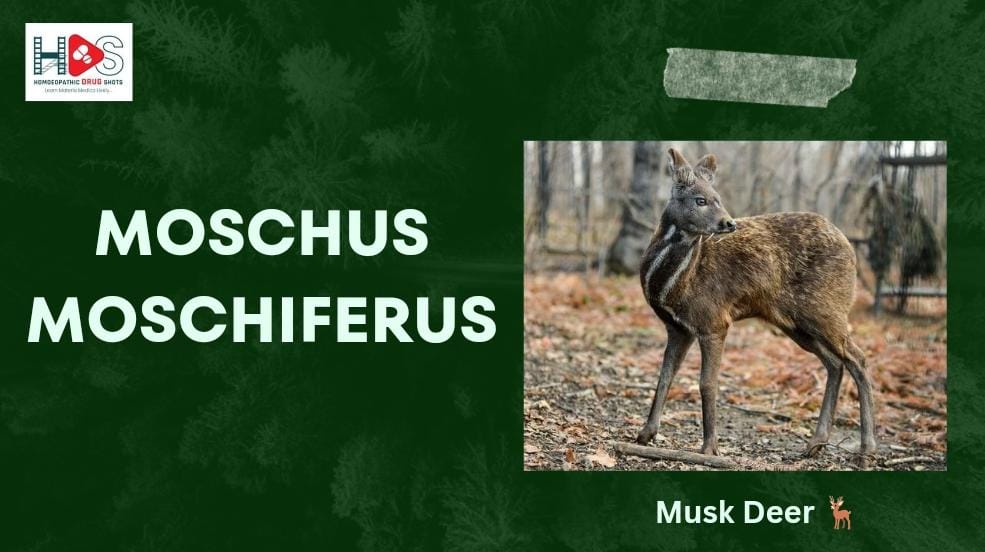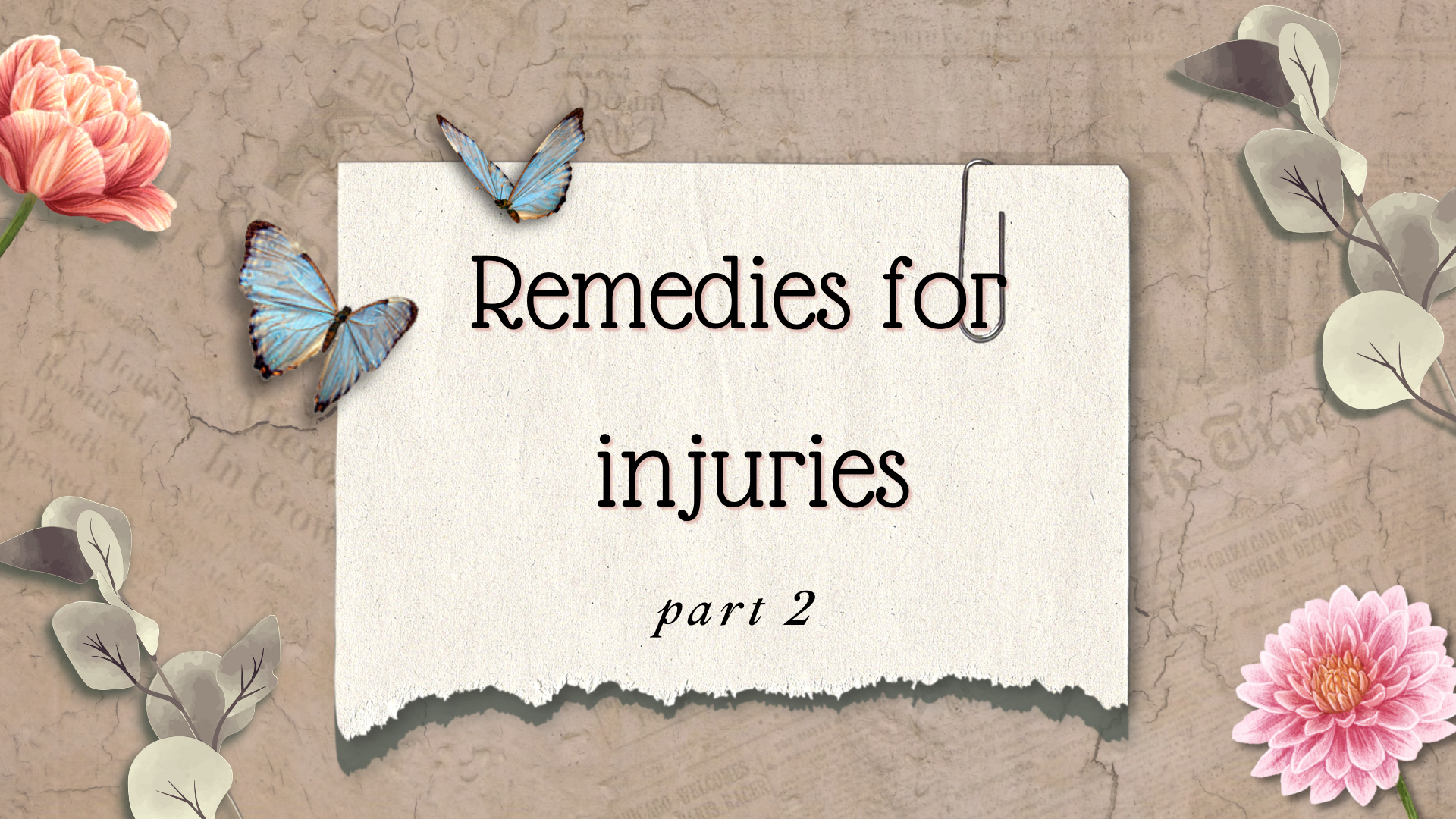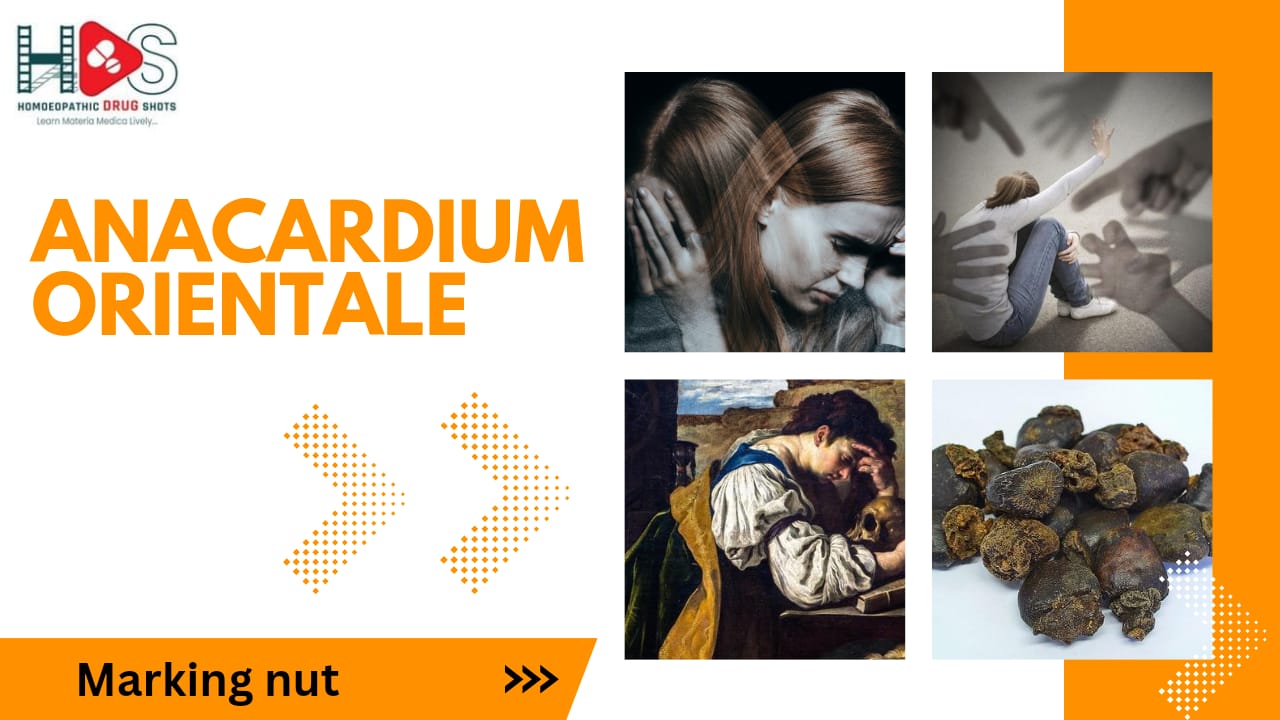
Moschus Moschiferus | Homeopathic Materia Medica | HDS
Moschus is a remedy for hysteria and nervous paroxysms , Fainting fits and convulsions, catalepsy, etc. The characteristic condition begin worse by cold; there is great sensitiveness to air. The well-known power of Musk-the perfume-to produce fainting in some by the mere smelling of it, gives the chief keynote for its use in homoeopathy.
Common Name :
Deer musk, Musk, Moschus.
Family :
Mammalia
Preparation :
Trituration of inspissated secretion contained in preputial follicles.
Constitution :
It is suited to spoiled, sensitive natures and hysterical women and men. Girls are selfish, obstinate, self-willed, pampered.
Thermal Relationship :
Chilly Patient.
Ailments From :
Chill.
Clinical Conditions :
- Angina pectoris.
- Catalepsy. Croup.
- Diabetes.
- Dyspnoea.
- Epilepsy.
- Fainting.
- Heart, failure of. Herpes, mercurial and venereal.
- Hiccough.
- Hypochondriasis.
- Hysteria.
- Hystero-epilepsy.
- Impotence.
- Laryngismus.
- Lungs, paralysis of.
- Pregnancy, complaints of.
- Rage, fits of.
- Typhoid.
- Vertigo.
- Whooping-cough.
Mental Symptoms :
- Sexual hypochondriasis.
- They are self-willed, obstinate and selfish.
- Dread of death, and talks only of death when there is no serious complaint.
- Anguish and palpitation.
- Peevishness and quarrelsomeness.
- In a constant hurry, and lets things fall from her hands.
- Foolish gestures and complaint of pain.
- Apprehension, trembling and palpitation.
- Fear of lying down lest she die.
- Sensation of falling from a height, or as if rapidly turned around.
- Great absence of mind, sometimes with confused speech.
- Cries one moment, uncontrollable laughter the next.
- Sudden loss of memory.
- Emotions, feelings, attitude, disposition; rage, fury.
Characteristic Physical Guiding Symptoms :
- A remedy for hysteria and nervous paroxysms, fainting fits and convulsions, catalepsy, etc.
- Much nervous trembling and frequent fainting.
- Faints easily; faints dead away from the least excitement.
- In nervous or spasmodic complaints where the patient feels very cold & in epileptic fits where there is rigor or chilliness, or shuddering as though the patient was very cold.
- Sexual desire is much excited in both sexes, even in the aged.
- Headache as if from a heavy weight. As if a cord were frequently drawn and tightened so as to cut head in two.
- Rushing in ears as from strong wind or from the wing of a bird.
- Burning heat in bed.
- The characteristic condition begin worse by cold; there is great sensitiveness to air.
Particulars :
1. Head :
- Hysterical headaches, with copious colorless urine.
- Vertigo and wavering before eyes, on least movement of head or eyelids. < stooping, > rising.
- Heaviness in head.
- Compressive and stunning headache, esp. just above root of nose; with nausea in evening, > moving head, and in room, > in open air.
- Congestion in head.
- Congestion of blood to head, heaviness of head.
- Compressive pain over root of nose.
- Pressure on top of head.
2. Ears :
- Rushing sounds in ears as from wind, or fluttering as the wing of a bird.
- Eruptions on ears, with burning pain after being scratched.
- Hardness of hearing.
- Discharge of cerumen from ears.
3. Stomach:
- Craves beer or brandy.
- Desire for black coffee, stimulants.
- Aversion to food. The sight of it makes her sick. Vomiting.
- Pressive, burning pain and distension of stomach.
- Sensation of fulness and obstruction in region of stomach and epigastrium, sometimes with uneasiness, < after a moderate meal.
- Faints while eating.
- With stomach symptoms, anxiety in chest.
4. Respiration:
- Laryngismus stridulous in self-willed girls when they fail to have their own way.
- Tightness of chest, is obliged to take a deeper breath.
- Sudden constriction of larynx and trachea.
- Asthma, with intense anxiety, fear, and smothering sensation.
- Cramp-like and suffocating constriction in chest, esp. after taking cold.
- Angina, tightness of chest, obliged to breathe forcibly.
- Spasmodic croup in nervous children after punishment.
- Dyspnea and oppression of chest and heart.
- Spasmodic asthma in extremely nervous women and children.
- Paralysis of chest, rattling, cannot expectorate; fainting.
- Cough ceases, mucus cannot be expectorated.
5. Limbs :
- Restlessness in legs, and tibia cold.
- One hand hot and pale, the other cold and red.
- Trembling in legs, as after great fatigue, when seated.
- Sensation of coldness on tibia.
- Drawing pains along the entire extent of the arm, and esp. in wrists, as from cramp.
- Convulsive movements of hands and fingers.
- Swelling of hands, with shooting pains.
- Limbs; tense, feel too short.
General Modalities :
< in open air, rubbing.
> cold. The open air is felt very, very cold.
Relationship :
Compare : Nux mosch; Asaf; Valer; Sumbul; Ign; Castor.
Compatible : Ambra.
Antidotes : Camph; Coff.
Worked By : Sunitha Asir (Final BHMS)







